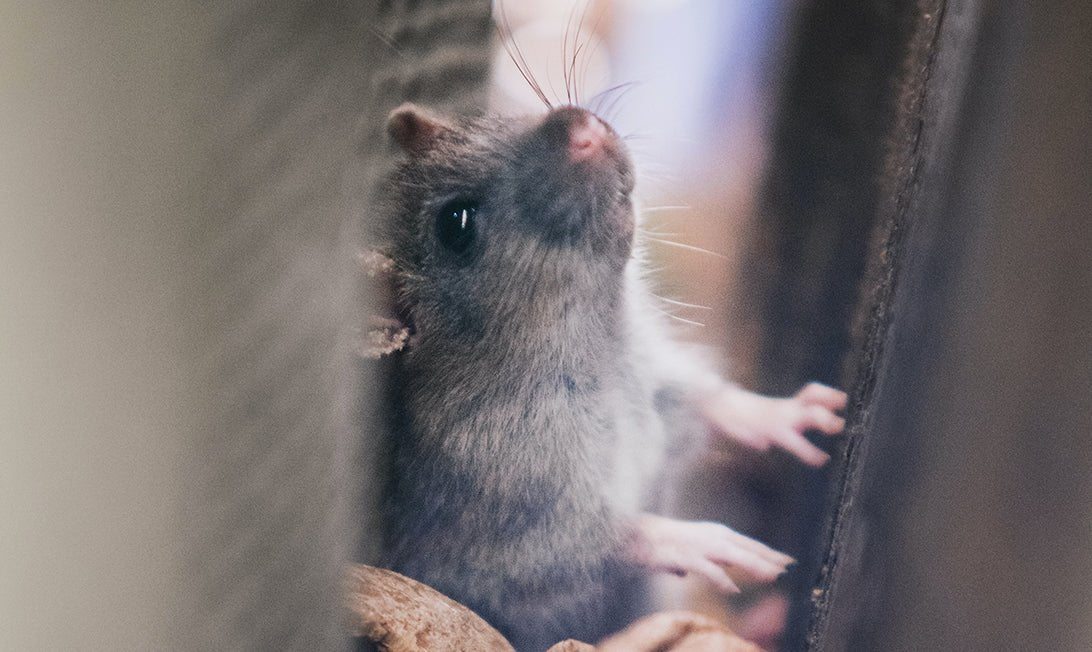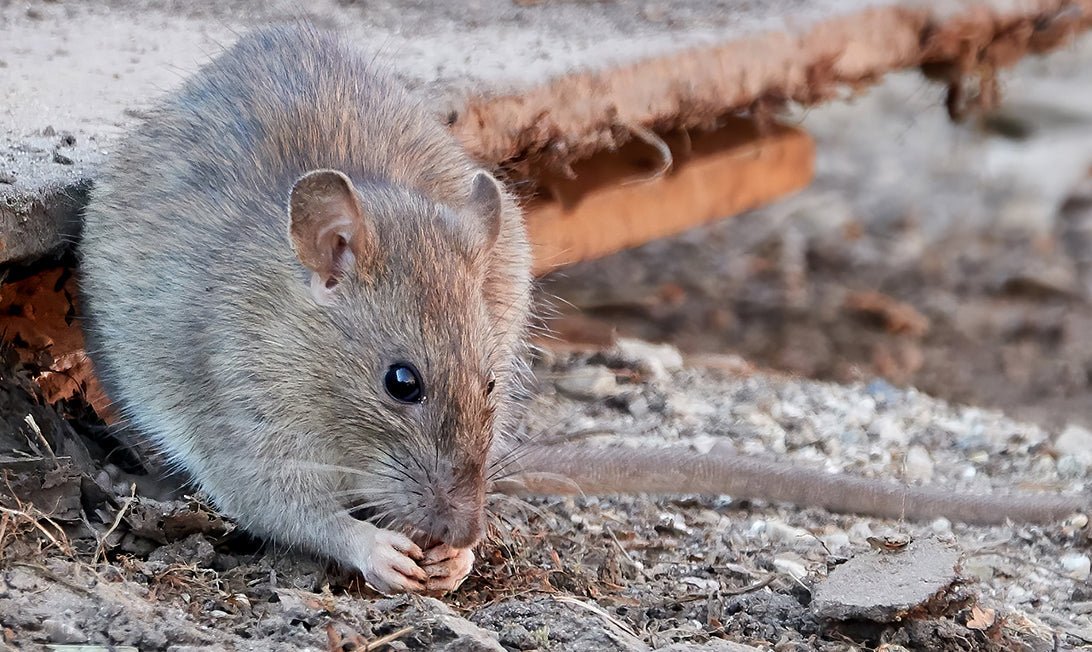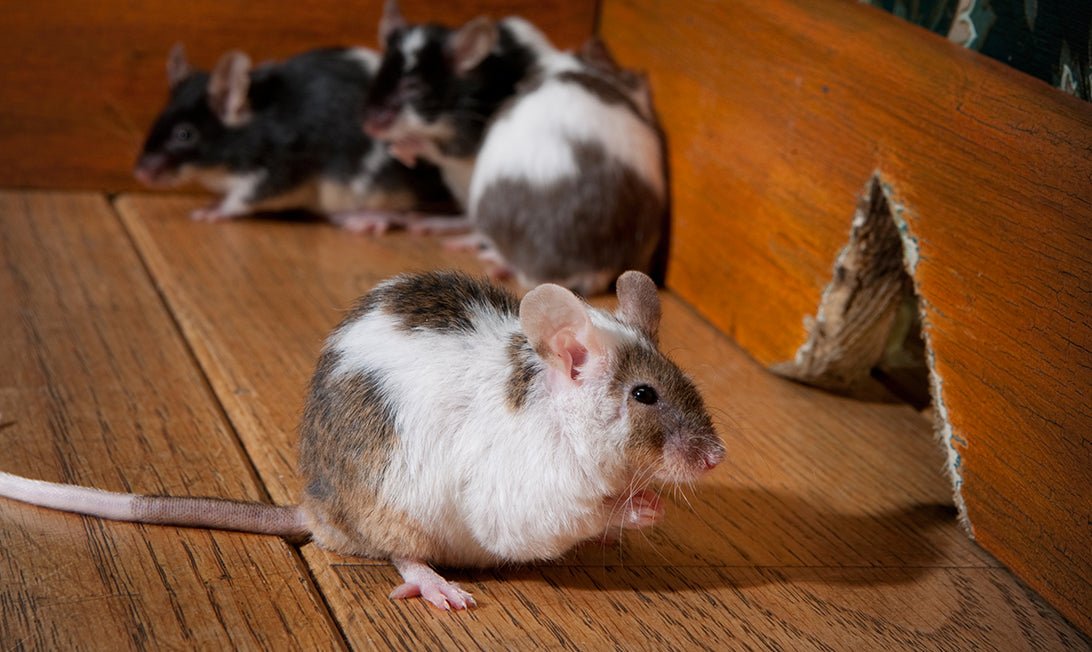
Rats have had a complex relationship with humans since the dawn of time and are among the most well-known pest species (1).
In addition to residing in sewers and subways, rats have been unwanted guests in people’s homes for thousands of years (2). Living in close quarters with rats has made many homeowners wonder what they can do about them.
Rats tend to chew through nearly everything. This chewing capacity develops early in life, with the front teeth, or incisors, developing after the rats are 23 days old (3). These incisors grow, causing rats to chew continuously. This drive makes rats destructive, chewing through walls, electrical cables, and insulation.
Not only are rats destructive, but they also search out areas where they feel safe and warm, with direct access to food and water (4). This instinct is the reason why many rats choose to live in people’s homes.
This can be particularly disturbing if you do not want to hear rats scurrying past your bedroom walls at night. So how do rats end up in the walls? And what can you do about it?
Can Rats Chew Through Walls?
Rats are known for their abilities to chew through walls, floors, insulation, wires, piping, and almost everything else found in your house.
Rats can inflict significant damage to your home. This can be especially true when they chew through electrical wires, resulting in fires (5).
It is estimated that rats can create an average of $1,104 (USD) worth of damage to small businesses per year in badly infested urban areas. Rats can even lead to extreme economic loss, causing these businesses to go bankrupt (6).
As a result of their ability to cause damage, there has been a lot of effort to figure out how to get rid of rats and make sure they do not come back.
How to Know if There Are Rats in Your Walls
There are several telltale signs that you have rats in the walls. First, look for holes. Holes larger than the size of your palm are a sign you may have a rat infestation. These holes will often lead to food or water sources the rats are accessing, including the pantry, cupboards, or the skirting next to the floor by pet dishes (7).
Secondly, rat droppings, urine odors, and scampering noises all point towards the presence of rats in your house. Rat droppings are bigger than mice droppings, and a large quantity of them point to having more than one rat in the house (8).
How to Get Rid of Rats from Your Walls
Now, what do you do if you suspect you have a rat in the wall?
1. Prevent AccessFirst, it is important to make sure that you stop the rats from accessing the house. A good first step is to make sure no external holes or entrances are leading into the home. These access points are likely where the problem started. Any holes you find should be blocked or repaired (9).
2. Use Traps and Bait Systems
Next, it is time to start getting rid of the rats that are already there. This can be done through a mixture of traps and bait stations.
To effectively trap rats, use EcoClear’s RatX® Power Trap.
Ideally, bait stations and traps work best when used together. However, if the idea of checking rat traps every day turns your stomach, then a bait station can be a sufficient solution.
You can select from either our RatX® Small Bait Box or RatX® Large Bait Box.
Many bait stations use anticoagulants to kill rats. These can be both very inhumane and impact any other furry creature in your home, especially pets (10). Additionally, this can leave you with the problem of having the rat bodies rot in your walls. Fortunately, there is an alternative.
3. Use Dehydrating Rat Killers
Dehydrating rat killers, such as EcoClear’s RatX® Bait Discs and RatX® Pellets are ideal rat killers to use on their own or in conjunction with traps.
RatX® products use corn gluten meal pellets and bait discs to decouple the connections between the stomach and intestine to the brain. Without this connection, the rat does not recognize it is thirsty. Over a few days, the rat becomes dehydrated and falls asleep. The dehydrating agent also stops the rat from smelling after it dies.
By removing access to the house and clearing any present unwanted furry house guests from your walls, ceiling, and basement, you can permanently take care of your rat problem.
The Bottom Line
Finding out you have rats in your home is distressing, especially if you can hear them in your walls at night.
There are several ways to get rid of rats, including sealing all exterior holes and setting up traps and bait for those remaining in your home. EcoClear’s RatX® products are the perfect combination to safely, effectively, and humanely eliminate rats for good.


